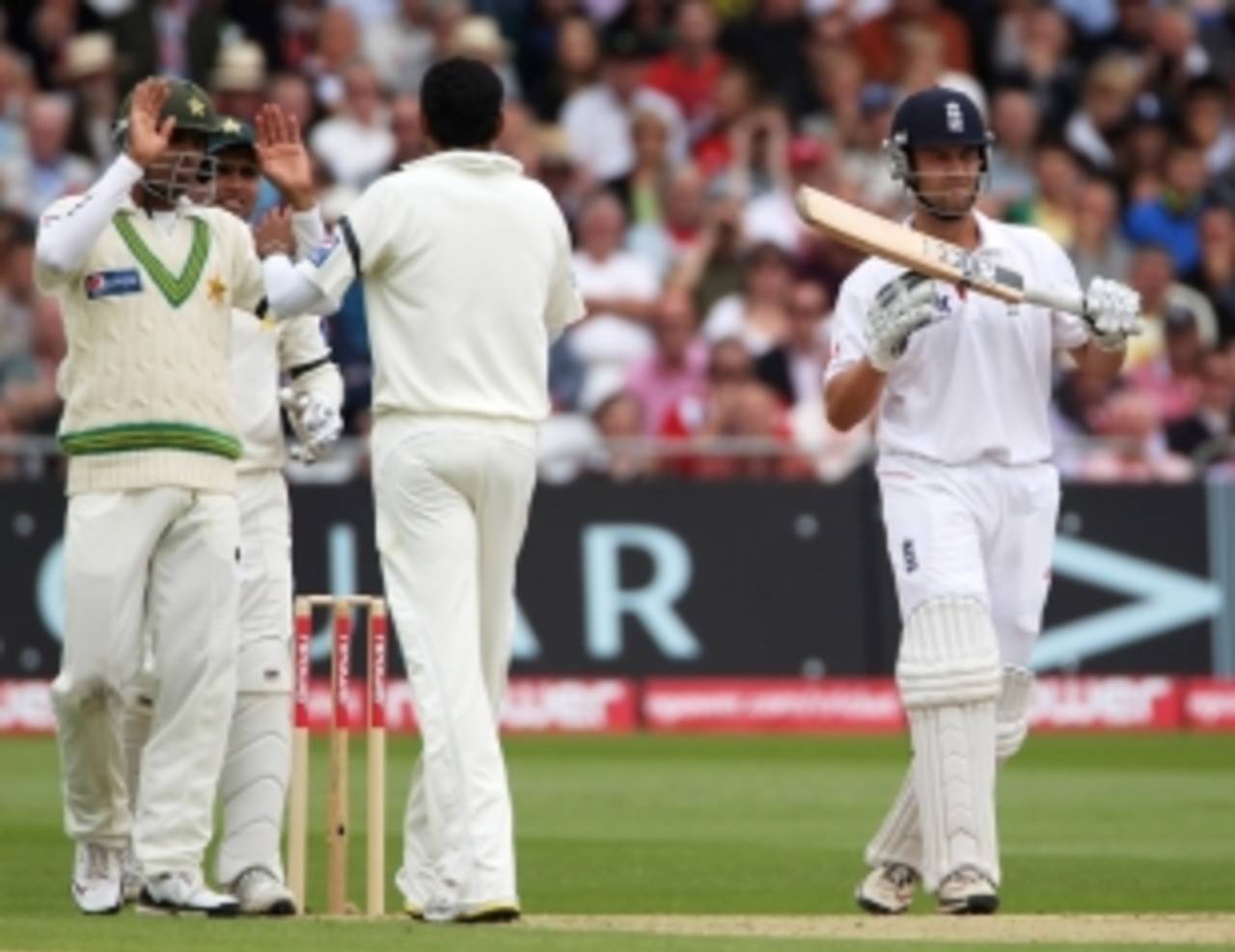What the UDRS teaches us about human nature
Acute observers of the first England-Pakistan Test will have gleaned many insights from the use and abuse of the review system
Daniel Norcross
Aug 6, 2010, 5:50 AM

Trott: soon to become the first man to refer a bowled dismissal • Getty Images
A new series has begun between England and Pakistan and the Umpire Decision Review System has been reincarnated in its umpteenth guise. Like Burton and Taylor, the ICC and the UDRS have an explosive chemical relationship that just won't go away.
The cricket literati grumble about inconsistencies here and umpires being undermined there, but for me the UDRS provides the viewer with thrilling insights into the tortured minds of our cricketing heroes. A final layer of complexity; a game within a game.
To fully appreciate the UDRS the viewer must put aside juvenile yearnings for consistency and fairness and instead focus on the delicious interplay between the dismissed batsman and his non-striking partner on the one hand, and the frenzied bowler and his embarrassed captain on the other. While, of course, we cannot be sure of exactly what is being said, the body language is usually very clear.
Scenario one: a young, inexperienced Pakistani batsman, let's call him Azhar Ali, is given out lbw or caught-behind. He doesn't think he's out. He approaches his batting partner - let's call him Umar Akmal.
"I don't think I'm out" says Ali. Umar gives him a stern look while calculating that if this referral goes pear-shaped there will be none left for him. Umar says nothing but does allow his head to sway gently on his shoulders, indicating his deeply held belief that Ali should just hop it now and stop wasting everyone's time and Akmal's potential get-out-of-jail card. Ali, who believes Umar to be a man of excellent character with only the best interests of the team at heart, obligingly trots back to the pavilion. Three balls later Umar is plumb, refers it pointlessly and condemns the rest of his team to Tony Hill's capricious whims. Ali learns a vital life lesson.
Now take scenario two: England in the field. The usual procedure is for a batsman to miss an intended sweep off a sharply turning and bouncing delivery from Graeme Swann. Swann bounces on the spot and screams for all his worth. Umpire turns him down. Swann struts towards Strauss. Strauss turns away and starts sniggering. Swann teapots. Strauss gives up as if to say, "Okay, then, if it'll shut you up," and replays confirm the ball is going over and past leg stump by about five inches. It's as if England's skipper is happy to be rid of the damn things so he doesn't have to go through the rigmarole of talking his bowlers down. Andy Flower learns that he needs an assertiveness trainer for Strauss.
These scenarios are only the tip of a thrillingly complex iceberg. By the end of this series, spectators, captains and coaches alike will have a comprehensive psychological dossier on every player and the results will be surprising. For example, I predict that Kevin Pietersen, contrary to his popular image, will be too demure to refer - and his wife will write a song called exactly that. Jonathan Trott, on the other hand, wise to Umar Gul's frequent overstepping, will refer even when he's bowled middle stump. And Strauss will designate Paul Collingwood as England's official referrer on the field to save himself the social awkwardness of standing up to Swann. Justin Langer will be on hand to take copious notes, which will appear by accidental design in Phil Hughes' tweets.
But enjoy it while it lasts because, like Burton and Taylor, the ICC and the UDRS seldom make it past the honeymoon period.
Daniel Norcross is a founder of and commentator on Test Match Sofa, the alternative cricket commentary